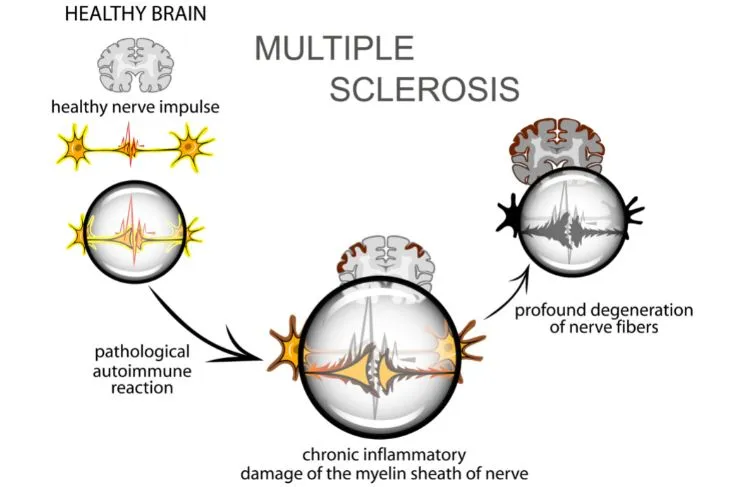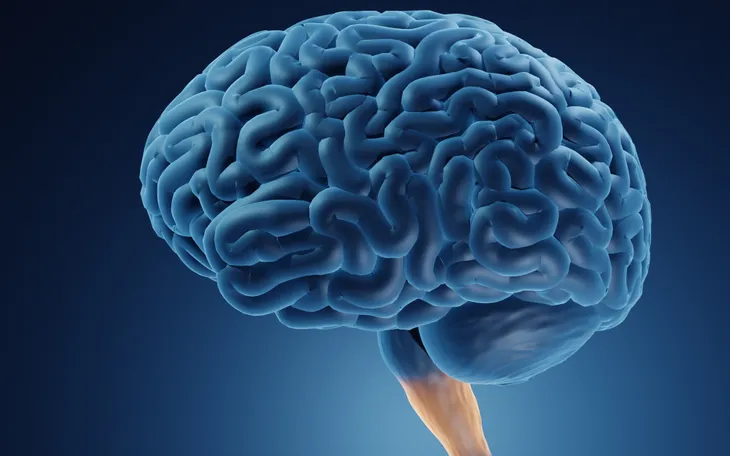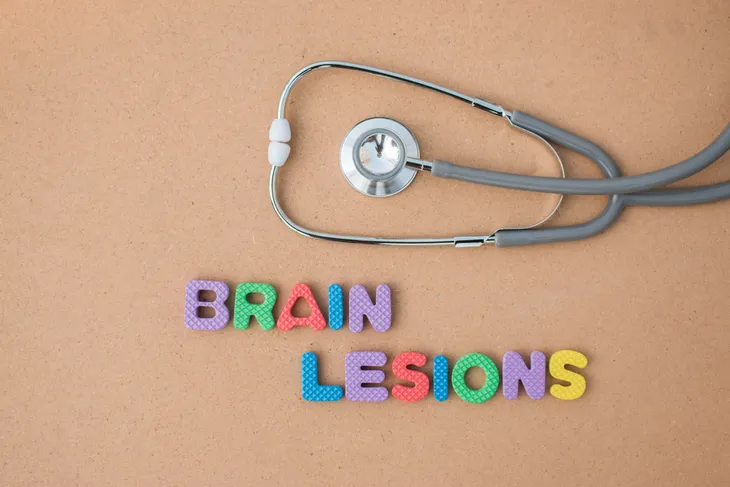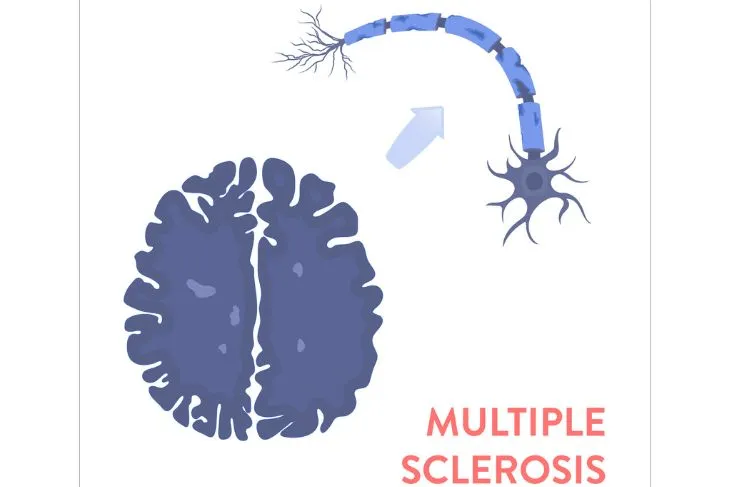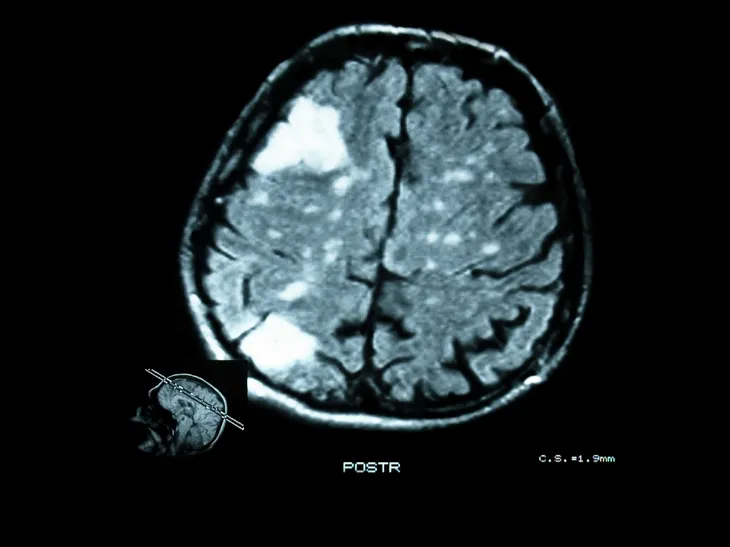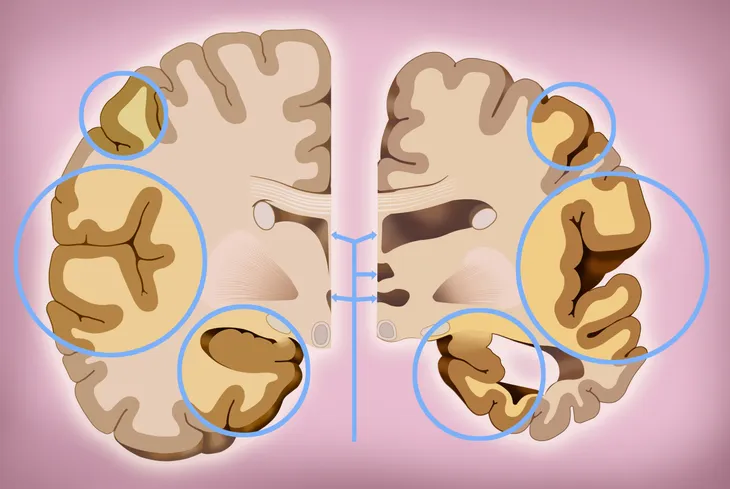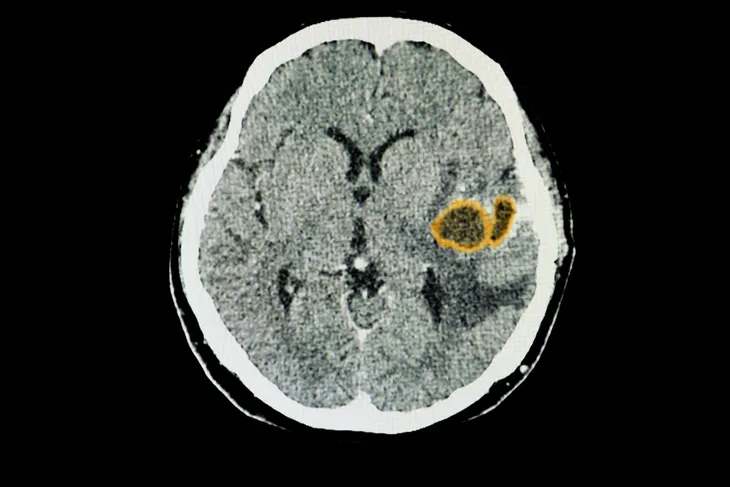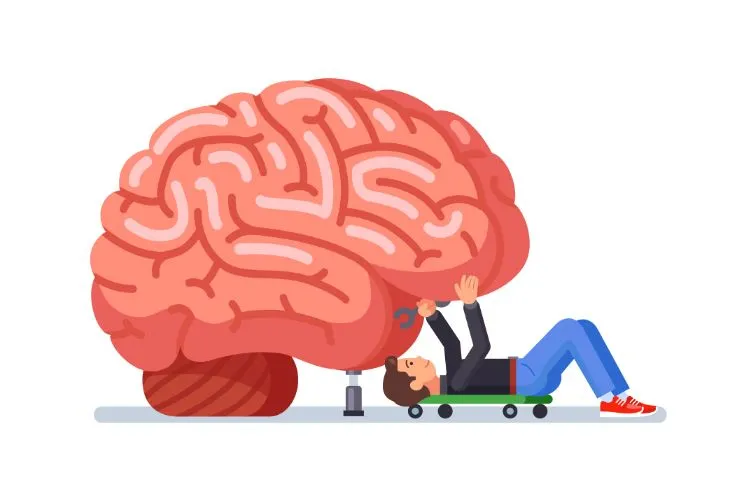- Multiple sclerosis is an autoimmune disease that attacks the central nervous system and can have a major impact on the brain.
- As a result, many symptoms are cognitive, but can include vision problems, muscle weakness, dizziness, numbness and tingling, and loss of coordination.
- The biggest impact on the brain are lesions which attack myelin, a fatty substance that protects nerve fibers in the brain.
- There are some treatments that can help slow the growth of lesions and prevent long-term neurological damage.
The brain is a very complex and fascinating organ. In fact, it’s so complex it isn’t even fully understood. However we do know that when someone has multiple sclerosis (MS), it can have a major impact on their brain. According to the MS Society of Canada, MS is a chronic autoimmune disease that attacks the central nervous system (i.e. brain, spinal cord, and optic nerve).
While the symptoms of MS can be felt throughout the body, many are cognitive. Issues with vision, memory, balance, and mobility are all thought to be caused by lesions in the brain. Other affects relate to brain atrophy, shrinkage, and overall brain function. To better understand this disease and its affects, here’s a look into what MS looks like in the brain…
How MS Attacks the Brain
For most people with MS, symptoms don’t show up or won’t get worse until there is a flare of disease activity. When a flare occurs, “what we think happens is that there is inflammation coming from the bloodstream, and that’s the first step in a relapse or new lesion,” explains Anne Cross, MD, a professor of neurology and MS specialist at Washington University School of Medicine in St. Louis to Everyday Health.
Dr. Cross further explains that during this process immune system cells and other substances that enter the brain won’t just act alone. They also recruit local cells to “secrete pro-inflammatory substances in the area.” Some will attack myelin, a white fatty substance that blankets nerve fibers in the brain. When myelin becomes damaged, “nerve fibers can become exposed, which may caue them to transmit signals erratically or less efficiently,” writes Everyday Health.
How MS Affects the Brainstem
The brainstem is very small, but important. It is where many nerve pathways meet allowing messages to travel between the cerebral cortex, subcortical regions, cerebellum, and spinal cord. It’s also where the cranial nerves emerge which are responsible for eye movements, facial sensation and movements, as well as basic survival functions like breathing, explains VeryWell Health.
According to the source, MS primarily affects the white matter of the central nervous system. This is located in deep areas of the brain, as well as out portions of the spinal cord. The white matter of the brainstem can be affected by what’s called MS demyelination. “The process makes nerves slow down to the point of not functioning, producing the characteristic signs and symptoms of MS brainstem lesions,” writes VeryWell Health.
What are Brain Lesions?
MS can cause lesions on the brain. The brain and spinal cord contain nerve fibers protected by a membrane known as myelin sheath. This coating helps increase the speed that signals can travel along the nerves, explains Healthline. In a person with MS, the overactive immune cells in their body triggers inflammation which can damage the myelin.
“When that happens, damaged areas known as plaques or lesions form on the brain or spinal cord,” writes Healthline. As a result, people with MS should carefully monitor their brain lesions with their doctor to known whether or not they are progressing. Healthline advises sticking to an effective treatment plan to hopefully slow the development of lesions.
How They Form in MS
In some cases a loss of myelin does nothing and won’t interfere with nerve signals. For the most part, it depends on how much myelin is lost in a specific bundle of nerve fibers, explains Dr. Cross to Everyday Health. When enough myelin is lost, a magnetic resonance imaging (MRI) scan of the brain will be able to detect and show a lesion. In this case, MS symptoms might also start to develop.
Although even when a lesion does develop, they don’t necessarily keep growing without medical treatment. “The body calms down these lesions and surround them, and they stop,” says Dr. Cross. If it stops developing at a certain point, there may be no symptoms at all. “You might see a region that’s demyelinated, but the nerve fibers are still there and haven’t been damaged too much,” adds Dr. Cross. “And that person may have no functional deficits from that lesion.”
Of course in other cases, lesions will damage the nerve fibers so badly that they no longer function. This makes it impossible for them to send signals and can result in permanent loss of cognitive and physical function, warns Everyday Health.
What Do Brain Lesions Look Like?
The only way to see a brain lesions is by doing an MRI scan. These types of scans can provide doctors with a significant amount of information, such as diagnosing someone with MS and the status of their condition, says Medical News Today. The way a lesion looks on an MRI scan depends on the type of scan a person gets.
A lesion could appear as either a bright spot or a dark spot, explains the source. Some lesions might even have a darker outer edge that appears to expand. In this case, experts refer to these as “smouldering spots,” says Medical News Today. They usually only show up in research when using specialized techniques.
Symptoms of Brain Lesions
MS causes a wide variety of symptoms, many of which affect bodily functions thanks to its affects on the brain and spinal cord. When lesions develop on the spinal cord or brain they can disrupt the movement of signals along nerves. This can cause a variety of symptoms including vision problems, muscle weakness, stiffness and spasms, as well as numbness or tingling in the face, trunk, arms or legs. You could also have some balance and bladder control issues, as well as persistent dizziness.
Lesions can continue to form overtime with existing ones growing larger and new ones appearing. Healthline warns this can cause a relapse or acute flare-up of symptoms. If new symptoms develop or existing ones get worse, it’s likely a result of this. However, new lesions can occur without any symptoms at all. “Only 1 in 10 lesions causes outward effects according to the National Institute of Neurological Disorders and Stroke (NINDS),” writes the source.
Symptoms of Brainstem Lesions
If there are lesions on the brainstem, the symptoms are similar, but can be different. VeryWell Health lists impaired strength and control of movements, slurred speech, a decrease in sensation to touch, pain, temperature, and vibration, as well as diminished balance and trouble sleeping. These symptoms also occur when MS lesions appear elsewhere in the body.
VeryWell Health notes that when MS affects the brainstem, it impacts cranial nerve functions that are unique to this area of the body. These are the associated symptoms:
- Diminished sense of taste
- Facial weakness
- Diplopia (double vision) or jerky eye movements
- Hearing impairment (including deafness, tinnitus, or noise intolerance)
- Swallowing problems (including choking, coughing, or gagging)
- Facial pain or altered facial sensation
- Vertigo
- Problems with blood pressure, heart rate, or breathing
Brain Atrophy with MS
Everyone loses brain volume with age, even people without MS. This process is known as atrophy, says Everyday Health. Unfortunately, for people with MS, it happens much faster. According to Everyday Health, it’s normal to lose 0.1 to 0.5-percent of brain volume each year. People with MS typically lose from 0.5 to 1.35-percent, according to an article published in the journal Multiple Sclerosis and Related Disorders. Brain atrophy can begin even before a diagnosis.
A lesion from MS causes nerve fibers to disappear in significant numbers. This means myelin is lost from areas of the brain surrounding that lesion. “That’s because nerve fibers can be very long, extending from one area of the brain to another,” writes Everyday Health. “A lesion may affect only a small portion of a nerve fiber at first, but when the nerve fiber dies, myelin is lost from the entire length of that fiber beyond the lesion.”
Neurologists think of the brain as a mix of gray and white matter. Gray matter is made up of the main bodies of nerve cells, explains Everyday Health. Whereas white matter is nerve fibers that extend from these bodies. White matter gets its neutral color from the myelin that surrounds the nerve fibers. “So when myelin is lost in areas outside lesions, it tends to cause atrophy of white matter,” writes the source. Brain atrophy isn’t limited to white matter. It also affects entire nerve cells, which includes loss of the main nerve cell bodies that make up gray matter.
Disappearing Lesions
There is new research that suggests brain lesion atrophy (shrinkage) could indicate how MS will progress. Medical News Today explains that scientists usually evaluate new MS medications on how well they can reduce the number of brain lesions. A 2018 study examined whether a reduction in lesions actually means the condition is progressing instead of improving.
“The researchers used MRI scans to observe brain lesion shrinkage in 192 people with MS,” writes the source. “They found that people with relapsing-remitting MS, the most common type of MS, had the highest number of new lesions. However, the lesions atrophied at higher rates in people with more severe progressive forms of MS.” This means that brain lesion shrinkage is more accurate on predicting how MS will progress rather than new or ongoing lesions.
MS Brain Lesion Treatment
Heathline notes that the Food and Drug Administration (FDA) has approved over a dozen disease-modifying therapies (DMTs) that can help slow the formation of new lesions. Many of these can manage MS and prevent MS exacerbations (relapses). Some treatments even promote the resolution of relapses and work to prevent long-term neurological damage, adds VeryWell Health.
In addition to DMTs, patients can also try rehabilitation. This includes physical and occupational therapy to help maintain motor strength and coordination. VeryWell Health also suggests swallow therapy to help people with MS eat and drink more comfortably. This can help prevent complications like choking and aspiration pneumonia. Depending on what symptoms a person is experiencing, a healthcare provider may also recommend corrective lenses or an eye patch to manage diplopia. If they are having hearing problems, a hearing aid can help too.
Will Brain Lesions From MS Go Away?
Researchers hope they will one day be able to heal lesions. Right now, all they can do is slow growth. Scientists are currently working on some myelin repair strategies or remyelination therapies that will hopefully help regrow myelin, explains Healthline.
For example, there was a small clinical trial published in 2017 which found that clemastine fumarate may help promote myelin repair in people who’ve suffered optic nerve damage from MS. This is an over-the-counter (OTC) antihistamine for seasonal allergies. As always, more research is needed to accurately assess the potential benefits and risks of using this medication. Healthline notes that research is currently underway to identify and test other potential strategies for promoting remyelination.
Ways to Keep the Brain Healthy
We should all do things to try and protect our brain health, but this is particularly important for people with MS. Everyday Health suggests doing things to protect cognitive health, even if they don’t directly affect the MS disease process. “Don’t do things that would lead to cognitive dysfunction due to causes outside of MS,” says Dr. Cross to Everyday Health.
Dr. Cross suggests doing things to reduce the risk of cardiovascular disease because poor blood flow could impact a person’s ability to think. Not only that, but a small stroke could be “critically bad” for the cognitive health of someone with MS. Another reason to maintain brain health is that in some cases, other areas of the brain can take over damaged areas (to a certain degree). This is known as cognitive reserve (or neurological reserve). According to Everyday Health, cognitive reserve may help explain why some people with brain lesions and atrophy don’t have any symptoms.
To reserve mental abilities with MS, it’s important to stay active, get lots of sleep, eat healthy, don’t drink or smoke, and get screened.

